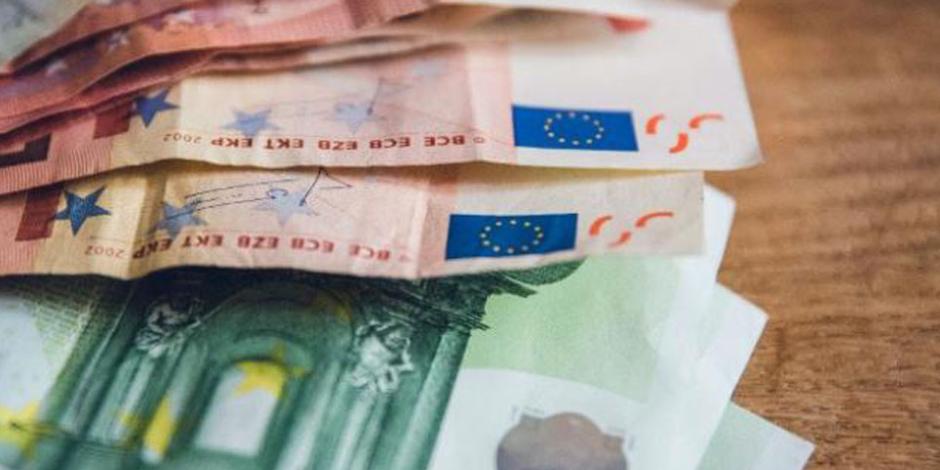A simple bowl of pasta with tomato sauce is not what it used to be. In a very short time, the price of pasta has risen 60 per cent in the UK and other countries. The price of cooking oil is up 65 per cent, and tomatoes and cheese also cost more. The world is suffering from inflation, and it’s a problem not just for pasta-lovers. US Federal ReserveUS-NotenbankFederal Reserve Governor Lisa Cook has said: “Inflation remains stubbornlyhartnäckigstubbornly and unacceptably high, and data over the past few months show that inflationary pressures remain broad-based.” This means that many different goods and services are to be affectedbetroffen seinaffected.
For about 40 years, in developed countries, inflation was so low that consumers never really needed to think about it. Now, this situation has changed dramatically, and it’s not all because of the pandemic. Global average inflation rose from 2.2 per cent in 2019 to around nine per cent in 2022. In autumn, Germany’s inflation rate, 10.9 per cent, was a 70-year record. Britain’s Consumer Prices Index (CPI) showed inflation over 11 per cent, and in Egypt, it passed 16 per cent. Even in China, where inflation has been low because economic growth has been to batter sth.etw. zusammenschlagen; hier: hart treffenbattered by Covid lockdowns and a property crisisImmobilienkriseproperty crisis, it still reached a 29-month high.
Inflation is bad for growth and bad for people; bad especially for poor people
The fire in the economy
The word “conflagrationFlächenbrandconflagration” usually refers to a large fire. High inflation is like a fire in the economy — burning up the value of money, it can cause panic and create distortionVerzerrungdistortions in the economy. It’s hard to plan and invest when you don’t know how much things will cost in the future, and bad financial decisions are often the result.
“In every economic environment, there are winners and losers — and inflation is no exception,” US economist Jeanette Garretty told Forbes. “However, the longer high inflation to persistandauernpersists, the harder it is to find winners.”
High inflation is also very unfair. Kristalina Georgieva, head of the International Monetary FundInternationaler WährungsfondsInternational Monetary Fund (IMF), says inflation is “bad for growth and bad for people; bad especially for poor people”. Inflation is worst for those with the least money, as essential costs are a bigger part of their income. For this reason, it’s sometimes called a “tax” on low-income earners.
Unless incomes go up, inflation threatens to to drag sb. into sth.jmdn. in etw. ziehen; hier: treibendrag middle-income earners into poverty — people who, until recently, thought they were fine. Andrea Bell, who offers free meals at the Sunderland Community Soup Kitchen, in north-eastern England, told the BBC: “It used to be mainly homeless people ... but this last year, we’re seeing everyday working people coming through our doors.”
When essentials cost more, there’s less money left over to save — for retirement, for example, or for an emergencyNotfallemergency. The financial margin of errorFehlergrenze; hier: Spielraum für Fehlentscheidungenmargin of error can disappear very quickly. Pensioners and others on fixed incomes are particularly vulnerablegefährdet, anfälligvulnerable. Germany’s Parity Welfare AssociationParitätischer WohlfahrtsverbandParity Welfare Association reported that 16.6 per cent of people there are now considered “poor” — a record number that inflation will push up further.
It’s not just consumers who suffer. Economists pay particular attention to “core inflationKerninflationcore inflation”. This excludes energy and food prices, which are variable anyway, and consumers have little choice but to pay those costs. But for the travel and leisureFreizeitleisure industries, for example, inflation can be devastatingverheerenddevastating. When consumers tighten their belts, those are the first things to be cut. And just as households find it hard to save, businesses can struggle to invest, which damages long-term economic growth.

Why now?
Every economics student learns that when demand rises faster than supply, prices go up. This happens all the time with certain goods — especially commodityRohstoff, Warecommodities, like oil or agricultural products. The current broad-based inflation has more than one cause, and various factors have been more important in different countries.
Demand has to outstrip sth.etw. überholen, übersteigenoutstripped supply in many areas since the pandemic began, and supply chainLieferkettesupply chains are still being to disrupt sth.etw. stören; hier: unterbrechendisrupted by China’s zero-Covid policy and the war in Ukraine. Rising energy costs since the beginning of the war are a big driverhier: treibende Kraftdriver of inflation, especially in the eurozone and the UK. Britain’s Financial Conduct Authority (UK)FinanzmarktaufsichtsbehördeFinancial Conduct Authority (FCA) has found 7.8 million people are struggling to pay their bills, an increase of around 2.5 million people since 2020.
In the US, meanwhile, an overheated economy seems to be more significant. Many economists say interest rateZinssatzinterest rates were too low for too long. This made borrowing cheap, while saving money wasn’t lucrative. The US Federal Reserve and other central banks have since raised interest rates very aggressively, but reducing inflation takes time.
Not everyone thinks that’s the whole story, however. “We spent years with interest rates stuck at zero, and inflation went nowhere,” John Cochrane, an economist at the Hoover Institution, told NPR. Instead, Cochrane points to the pandemic stimulusAnreizstimulus and reliefEntlastung, Hilferelief measures, which most rich nations implemented in one form or another. The US government gave money directly to households — about $5 trillionBillion(en)trillion in total. While many people needed help, many others didn’t and spent that extra money with great enthusiasm. However, Cochrane says the real problem was that the fundingMittelfunding came from government borrowing with no measures to take money back out of the economy — by raising taxes, for example. “The fact that there wasn’t a clear plan for paying it back really is one of the key reasons why we’re seeing inflation now.”
Can we control inflation?
Half a century ago, the 1970s saw “runawaygaloppierendrunaway inflation”, which, in the US, was over 14 per cent by 1980. It was brought under control when monetary policy (interest rates) and fiscal policy (government spending and borrowing) worked together to slow down the economy. Central banks are attempting the same thing again. How bad the downturnAbschwungdownturn is all depends on how fast, how high and for how long interest rates are raised.
Will it work? Some economists point out that making supply chains more more resilienthier: weniger störanfälligresilient, through nearshoringVerlagerung betrieblicher Aktivitäten ins nahegelegene Auslandnearshoring, for example, means that goods simply cost more now. Others worry that the pandemic has given voters the expectation that politicians will protect them. If governments increased spending to make voters happy, that would keep inflation high. Kristalina Georgieva, from the IMF, says: “When monetary policy puts a foot on the brakes, fiscal policy should not step on the acceleratorGaspedalaccelerator because if it does, we are in for a very dangerous ride.”
HIDDEN INFLATION
Inflation is a loss of purchasing powerKaufkraftpurchasing power — each dollar, euro, etc., buys less than it did before. This can happen in different ways, even if prices don’t change.
to shrinkschrumpfenshrinkflation — less product for the same price. Have you ever bought something and found less inside than you expected? It might not be just your imagination.
to skimpknausernskimpflation — lower quality for the same price. Airlines or hotels, for example, quietly stop offering services while charging customers the same as before.
greedGiergreedflation — prices rise unnecessarily. Some companies may take advantage of the fact that inflation is now expected.
stagflation — a combination of “stagnation” and “inflation”. This happens when both inflation and unemployment are high.
coreKerncore inflation — excludes food and energy prices, which are volatileschwankungsanfälligvolatile. This makes long-term trends in prices easier to see.
Neugierig auf mehr?
Dann nutzen Sie die Möglichkeit und stellen Sie sich Ihr optimales Abo ganz nach Ihren Wünschen zusammen.



